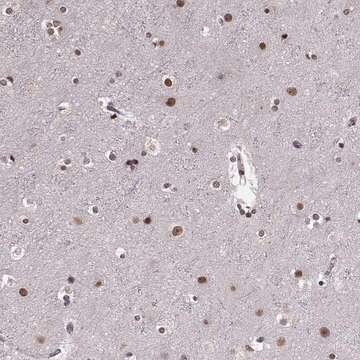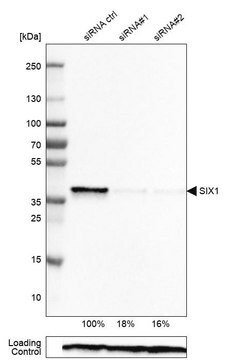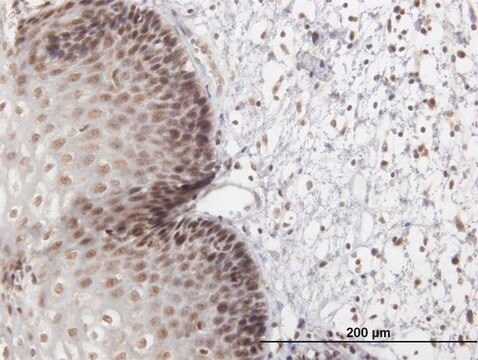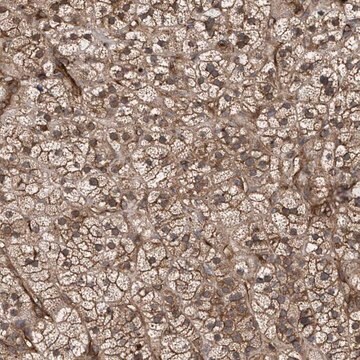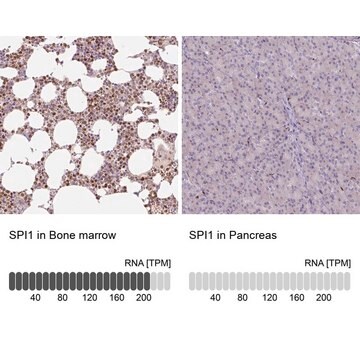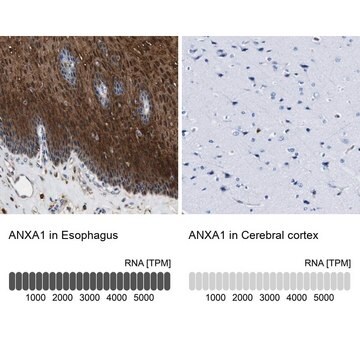SAB1405710
Anti-DFFA antibody produced in mouse
purified immunoglobulin, buffered aqueous solution
Synonim(y):
DFF-45, DFF1, ICAD
About This Item
Polecane produkty
pochodzenie biologiczne
mouse
Poziom jakości
białko sprzężone
unconjugated
forma przeciwciała
purified immunoglobulin
rodzaj przeciwciała
primary antibodies
klon
polyclonal
Postać
buffered aqueous solution
masa cząsteczkowa
antigen ~36.5 kDa
reaktywność gatunkowa
human
metody
indirect immunofluorescence: suitable
western blot: 1 μg/mL
numer dostępu NCBI
numer dostępu UniProt
Warunki transportu
dry ice
temp. przechowywania
−20°C
docelowa modyfikacja potranslacyjna
unmodified
informacje o genach
human ... DFFA(1676)
Opis ogólny
Immunogen
Sequence
MEVTGDAGVPESGEIRTLKPCLLRRNYSREQHGVAASCLEDLRSKACDILAIDKSLTPVTLVLAEDGTIVDDDDYFLCLPSNTKFVALASNEKWAYNNSDGGTAWISQESFDVDETDSGAGLKWKNVARQLKEDLSSIILLSEEDLQMLVDAPCSDLAQELRQSCATVQRLQHTLQQVLDQREEVRQSKQLLQLYLQALEKEGSLLSKQEESKAAFGEEVDAVDTGISRETSSDVALASHILTALREKQAPELSLSSQDLELVTKEDPKALAVALNWDIKKTETVQEACERELALRLQQTQSLHSLRSISASKASPPGDLQNPKRARQDPT
Działania biochem./fizjol.
Postać fizyczna
Nie możesz znaleźć właściwego produktu?
Wypróbuj nasz Narzędzie selektora produktów.
Kod klasy składowania
10 - Combustible liquids
Klasa zagrożenia wodnego (WGK)
WGK 1
Temperatura zapłonu (°F)
Not applicable
Temperatura zapłonu (°C)
Not applicable
Certyfikaty analizy (CoA)
Poszukaj Certyfikaty analizy (CoA), wpisując numer partii/serii produktów. Numery serii i partii można znaleźć na etykiecie produktu po słowach „seria” lub „partia”.
Masz już ten produkt?
Dokumenty związane z niedawno zakupionymi produktami zostały zamieszczone w Bibliotece dokumentów.
Nasz zespół naukowców ma doświadczenie we wszystkich obszarach badań, w tym w naukach przyrodniczych, materiałoznawstwie, syntezie chemicznej, chromatografii, analityce i wielu innych dziedzinach.
Skontaktuj się z zespołem ds. pomocy technicznej